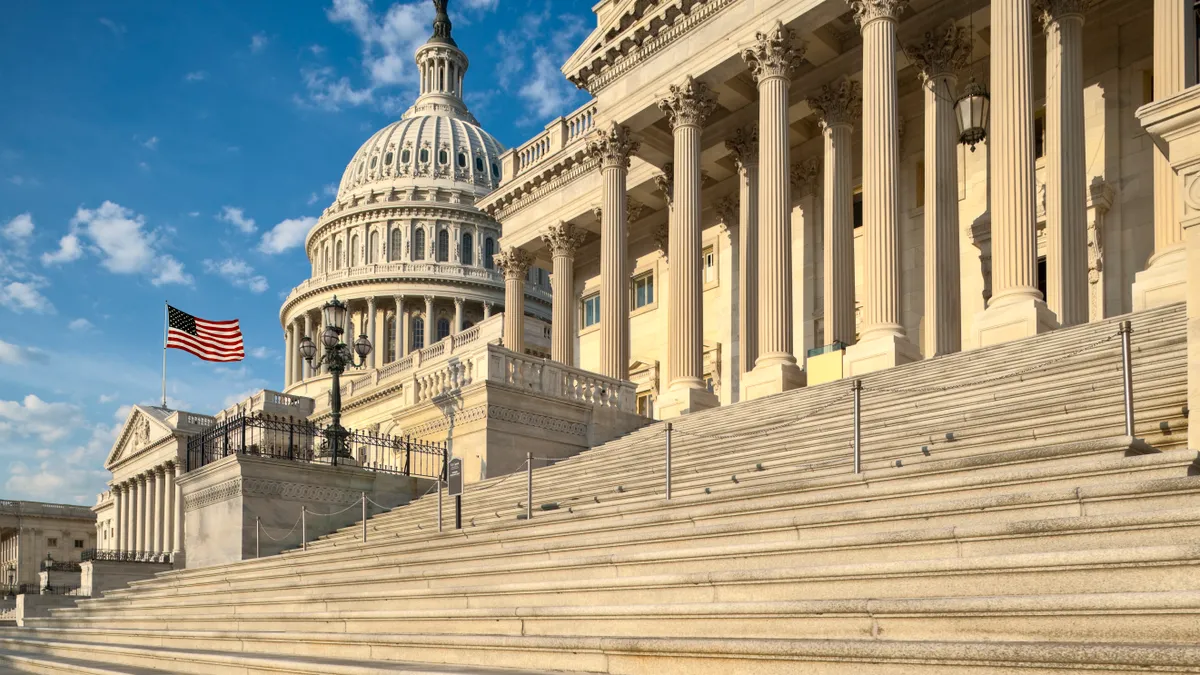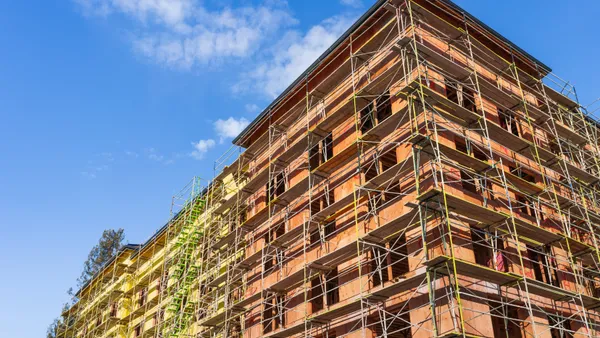With Congress back in session after its summer recess, lawmakers will consider several legislative proposals that could impact the multifamily industry.
These include the Choice in Affordable Housing Act, the YIMBY Act and the repeal of the CARES Act’s 30-day notice to vacate, also known as the Respect State Housing Laws Act, all three of which are still in play from last year.
Industry groups like the National Apartment Association and the National Multifamily Housing Council are focused on supporting policies that enable the industry to build more new housing — such as the YIMBY Act, which would require jurisdictions participating in the Community Block Grant program to outline their land use strategy.
Also among the NAA’s current initiatives is building bipartisan support for the Choice in Affordable Housing Act, which would, if passed, create more incentives for private housing providers to participate in the Section 8 housing program. These include one-time payments for participation and a streamlined compliance system.
“By ensuring that inspections are streamlined, and that we're able to encourage more housing providers to be able to get pre-approved inspections, we can shorten the wait times for renters,” Nicole Upano, assistant vice president of housing policy and regulatory affairs at the NAA, told Multifamily Dive.
The NAA and NAHB also continue to oppose policies that implement rent control at any level, including efforts to federalize landlord and tenant requirements. “Those requirements are so specific to the market and the locality in which the housing provider operates,” Upano said.
Aligned with this priority, the NAA is supporting the passage of the Respect State Housing Laws Act, which would remove the 30-day notice to vacate requirement that remains in place from the CARES Act in 2020.
All three bills have been reintroduced in the 118th Congress and are presently in committees.
Local legislation
A 59% increase in rents over the last 10 years, and in particular a surge of rent growth brought on by the aftermath of the COVID-19 pandemic, has led to a wave of rent control proposals at the state and local level across the country, according to Yardi Matrix.
The National Apartment Association is tracking more than 190 bills related to rent control and highlights Colorado, Massachusetts and Maryland as states of interest. These efforts, according to Yardi, have de-incentivized new construction in the areas in which they are enacted — such as St. Paul, Minnesota, in recent years — and led landlords to pull housing stock or defer repairs.
Potential rent regulation
In the beginning of the year, the Biden administration unveiled a series of housing-related federal government actions, including an information-gathering initiative about tenant screening and rent increase practices. This announcement included a blueprint for a potential Renters’ Bill of Rights, an outline around which the administration is basing its housing policy.
Among the actions outlined in the document is a stakeholder outreach program to “identify the opportunities and challenges” of introducing policies to limit rent increases at properties with mortgages backed by Fannie Mae or Freddie Mac.
“That’s a great concern to us,” said Upano regarding this action. “For us, any form of rent regulation has very dire consequences, [and we] try to continue to educate folks about the perils of that policy.”
The NAA sees increased housing construction and reform of the Section 8 program as ways to improve affordability.
“We want to make sure we're utilizing all the tools in the toolbox to help renters with their affordability challenges, take pressure off of rents and make sure that quality housing at all price points is being built,” said Upano.











